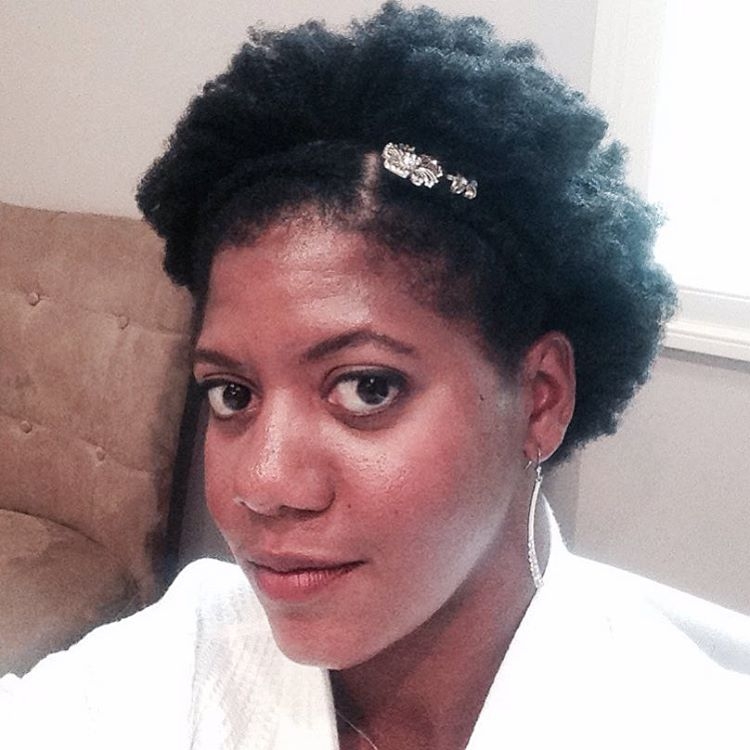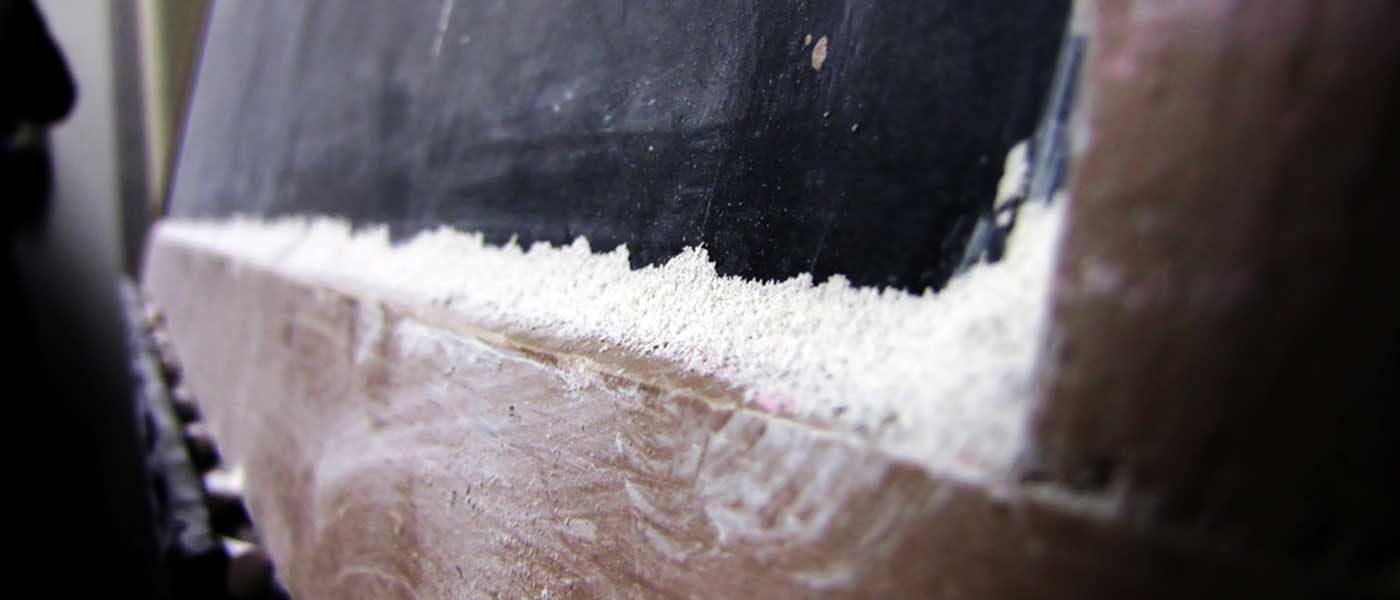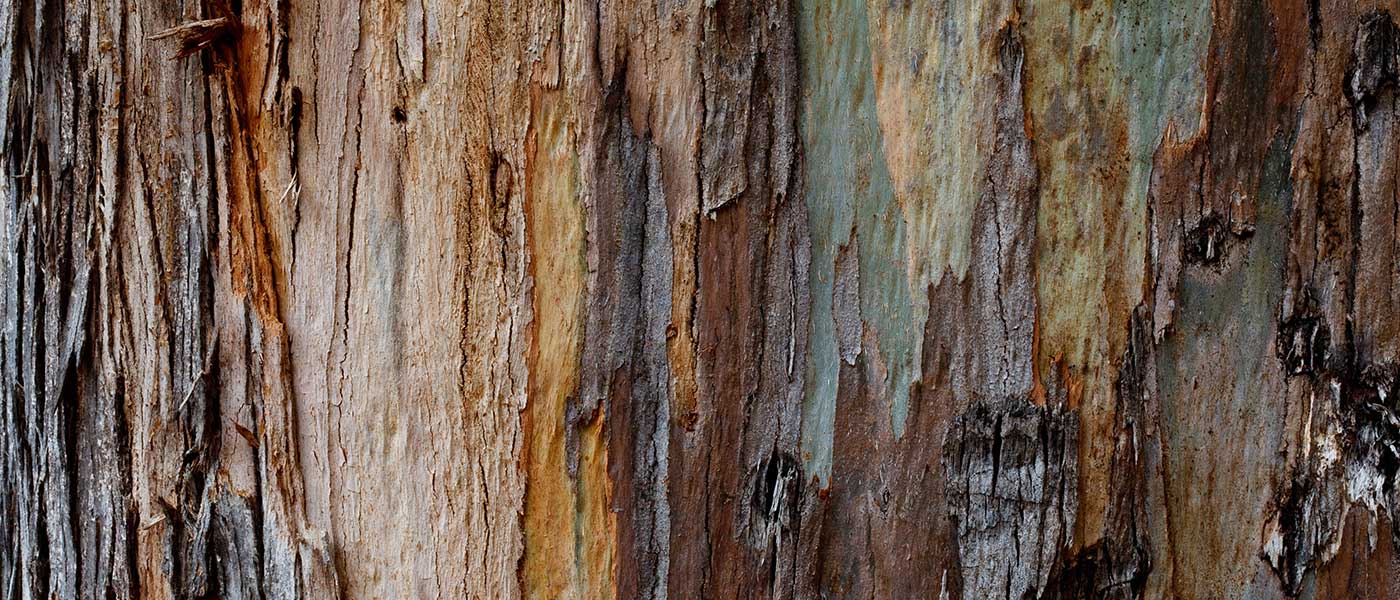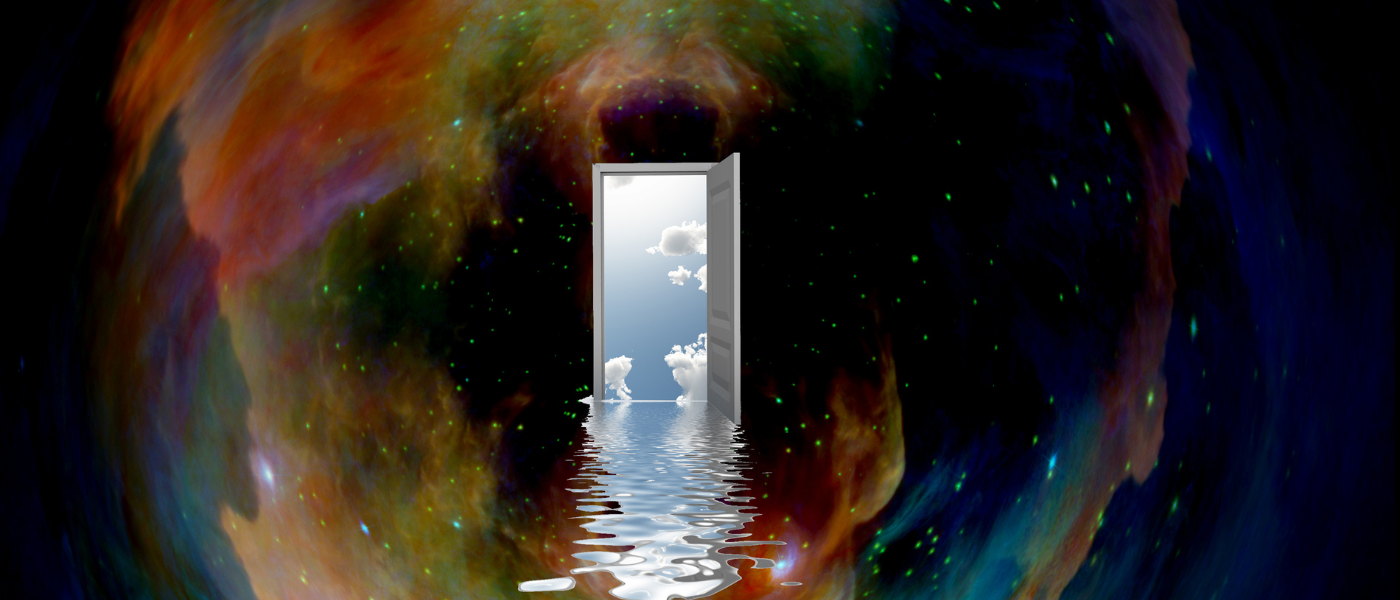Before my jaw surgery, I got used to doctors holding my face in their hands. They cupped my misshapen jaw, measured my midline, open bite, and overbite; they pored over my X-rays. They took pictures and then stepped back to see my face head-on, to come up with a game plan. “You have a nice face,” they’d tell me.
After my jaw surgery, after all the complications while I was asleep, after my three-hour surgery turned into fourteen hours, after multiple operating rooms and the addition of a neurosurgeon to my team, I got out of bed in the post-op surgical wing of the hospital. I shuffled toward the bathroom and I caught a glimpse of a puffy, red-eyed face. I thought, Who is that weirdo, peering into my room? Then I said, “Oh shit, oh no.”
I met my own eyes in the mirror and walked closer. The bloating, the swelling, the pressure. I gingerly poked at my oversized cheeks. My eyelids were huge, with a nasty scar above one eye where they’d taped them shut during surgery. I breathed and I could smell the sickening sweetness of my medicine and the shakes I’d been drinking coming off my skin.
Because of the swelling, the skin on my face pulled so taut it was peeling. Patches of deep pink, light brown, and dark brown dotted my face. And everyone at the hospital had been so kind to me. I tried to shut out the thought before it fully settled in my mind, but there it was anyway: How could they be so nice to someone with this face? I spent a lot of time looking into the mirror, trying to see what they saw. “You look great,” I heard often, as my doctors reviewed their handiwork, but what else were they supposed to say?
When I was little, my jaw grew in uneven. My cute open bite and overbite irked my dentist in elementary school. At the first visit to an orthodontist, at age twelve, they told my mother I’d need jaw surgery. She balked at the idea; I myself was skeptical, but my mother was in charge. I heard her later on the phone with my grandmother: “Can you believe what they want to do to my baby’s face?”
I ended up with braces in middle school anyway, to handle some wayward teeth, but ultimately, my orthodontist said the braces “would only do so much.” The way my jaw was shaped, there wasn’t enough room for all my teeth in my mouth.
I started to hear a clicking in my jaw years later, in grad school. I’d dismissed it as stress from classwork, from writing, from worries about turning twenty-six without a real job or health insurance. But a routine trip to the dentist led me to Vanderbilt Medical for X-rays and then a scheduled surgical date.
I tried to pray about it all: about grad school, the surgery, and the pain in my jaw, but I wasn’t certain I’d get what I wanted from that conversation with God. I wanted assurance and direction. I kept falling in and out of going to church, making friends with new people, or joining a young adult group, only to wander away again, wondering if I fit in, wondering if I was doing the right thing, if that was where I was meant to be.
The surgery felt timely; it seemed like a good idea. Grad school was over, and I had nothing new lined up. I needed something to do, some other project to focus on, some place to be, so this felt like a logical next step. I took it in stride. Just one more thing to handle. One more thing to get through.
In the hospital, a few days after my surgery, my cousin let me use her laptop to post a Facebook update. I drafted and deleted a message several times before I finally wrote:
Well, for the record, jaw surgery blows, but I’m doing
better! The nurses made me milkshakes and a bunch
of boys just piled up in the front yard, what gives?
A therapist once told me she noticed I am a stoic, private person. I was surprised she’d figured it out. I thought I’d hid it pretty well. But, she was right. I never want to give away too much. Jaw surgery should’ve been the one thing that made me jump at the chance to communicate with anyone I wanted, as much as I wanted, just not verbally. But the whole thing just made me frustrated. Here was my one excuse — drugged and with no other outlet. I could’ve written posts I fully intended to delete. Could’ve started up an anonymous blog, could’ve texted anyone anything and denied it later. I could’ve been reckless. It was as if I saw a tiny opening, and even with nothing to lose, was still too cautious to slip through it. I didn’t want to alarm anyone, didn’t want to respond to the text messages clogging my phone. Was I silent — even then, with my jaw wired shut — because I didn’t think I had enough to say, or did I not trust myself enough to know my own mind? Was I still afraid of what people would think if I was too honest or too loud or too vulnerable? Maybe if I had figured out who I was, if I knew, I wouldn’t have felt like I had to apologize to the world by biting my own tongue.
I kept having lucid moments in my daily schedule of pain medication, where I thought about praying. I thought about whether actually doing it could be the same as just thinking about it. I knew that since my surgery went awry, my parents were either pacing in a waiting area, or praying in the chapel. Somehow part of it felt like my fault, but I wasn’t sure if I was mad at God or myself.
Propped up in my hospital bed, I thought through all the work my surgeons had done. They needed to make five breaks for my surgery: one at each hinge; the third break along my lower jaw line; the fourth, as my doctors told me, to “separate the jaw from the cranium”; and the fifth on my narrow upper jaw, which was what had caused so much trouble in the first place. It wasn’t nearly wide enough, so they made a clean break straight down the middle. They split it in two, like a wishbone. I was impressed and horrified, unsure if I’d ever feel if I’d gotten my face back.
I was in the hospital for five days before they let me go home. A little over a month after my jaw surgery, I stared in the mirror, trying to square what I knew of my former face with the one staring back at me. In another week, I’d get the outer wires off my teeth. I’d get to eat exotic things, like applesauce and mashed potatoes, with a spoon. I ran my tongue over the wires, checked my scars, padded my fingertips down my jawline. Every once in a while, a nerve reawakened and I’d feel it tingle like an itch. I would gasp if my jaw would let me, if it wasn’t still tightly wired shut. I couldn’t see the difference in my face, not really, but I knew something had changed.
I took to impatiently walking up and down the stairs to burn off steam, waiting to feel normal again. I wondered when I’d get my light-filled epiphany. This was supposed to be one of those lightbulb moments, right before the hero takes off running for the love of their life, or when someone buckles down and sends in an audition tape, or that last push they need to make it across the finish line a millisecond before anyone else. I should have had a new lease on life, drowsily wandering around my parents’ house. So I looked for meaning in everything. With all that metal in my face, I half-expected to be struck by lightning. My preoccupation with this idea of an epiphany, that worry, helped keep me from sensing that sweetness on my skin, that lingering leftover reaction from all the medicine I was on, from all the shakes I’d been drinking, from the pressure in my jaw.
One day, as I paced, I caught a glimpse of myself in the mirror, which frustrated me. I stormed into the living room. I wrote my mom an angry note on one of the many tablets of paper scattered all over the house, in all caps: “MY FACE IS COMPLETELY DIFFERENT.”
She was used to my notes at this point — the pacing, the garbled swears, the useless exclamation points. She read my note a few times and tilted her head.
“Trini, what are you talking about?”
“Don’t recognize,” I scribbled.
She looked up at me. “You don’t recognize? Your face?”
I remembered I had a neurologist for moments when I didn’t seem like myself, for when I seemed confused. Just before my surgery, my mom had joked around, trying to take a picture of me in my hospital gown. Years later, I still wish I’d just let her take the picture.
I reassured her, “Yes, my face, but not the SAME.” All caps. Underlined.
She regarded me. “The swelling’s going down every day, babe.” She was reassuring herself as much as she was reassuring me.
The universe should have been throwing every opportunity my way. Everything should have been tuned in the perfect key, ready for my entrance. I didn’t know what I wanted out of my life, but I knew I deserved something. I ramped up my usual conversations with God, now gone far beyond the prayers I’d memorized at Sunday School. I wore a path in the carpet of my bedroom. I laid out my thinking, grumbling through the wires.
“Okay, so like … when people nearly die, when something happens to them, they get zen, yeah? They have inner peace, they cultivate a drive that propels them to act, they exude calm. It solidifies everything they know. They take this experience and they wear it like a fucking merit badge, because it helps guide them into what’s next, into the new, big thing, and they march forward …”
I stopped pacing. This wasn’t going to work. This wasn’t even a prayer. I felt like I was waving my arms, trying to flag down a helicopter. I was so desperate for something more. I needed my surgery to mean something, I needed to learn something, I needed it all to have a reason. I couldn’t go back and insert an epiphany into my surgery. And I couldn’t stop thinking about the entire time I was under anesthesia, from one OR to another, either. I didn’t have an odd dream or nightmare to panic over. No angels, or singing, or clouds to overanalyze. Not even a Black Jesus? Then what the hell was I supposed to do?
At one checkup, my surgeon surveyed his handiwork and said, “Your jaw is much more feminine now.” I could barely speak and be understood, I couldn’t yell, “What does that mean?” I spent even more time gazing at my face in the mirror — replaying the tiny things that other people suddenly had to say about what they thought I looked like. I was still trying to draw a line between what I saw in the mirror and what everyone else saw, and whether or not those two were the same.
Part of me thought this must be payback. Some self-retribution, some Catholic turn of events, from all those days in elementary school when I ambled around my room, avoiding the mirror. I thought it would never show me what I wanted to see. It’s not that I wanted to be someone else. I just wanted a vague version of me, but better, smoothed-over, like a Black Special Edition Barbie doll.
I wondered if my epiphany was delayed. Worse, if it had come already and I had missed it? If it instead came in tiny bursts and charges, like static on a doorknob. I felt cheated. I mostly hid in the house, waiting for it to hit me, before I went out into the world, epiphany-less, and ruined something. What if I were meant to go left and I went right? Movies like Sliding Doors haunted me. The Family Man. 13 Going on 30. “WHAT IF?” My brain would hiss.
My dad cautiously offered, “You know, a mild dose of vitamin D and some fresh air may be beneficial to your mood.” So I gave the carpet in my room a rest, and I paced through the backyard instead. Barefoot, I pondered the state of the universe, feeling the grass between my toes.
I snuck around to the front of the house. I went to the mailbox and I found a puffy envelope from Vanderbilt Medical. Back inside, I opened it to find my complete and itemized bill. For $129,000.
“Noooo,” I said out loud. “No way.”
It sounded like a growl and my mom said, “Honey, are you okay?” as she came into the kitchen.
Flushed and panicked, I looked closer at the bill. I had a zero balance. I didn’t owe anyone anything. I unfurled the entire thing, flipped through each page and looked over the costs. The 14-hour surgery, the three ORs, the neurologist, the angiogram and the arteriogram, the five nights in the hospital … all covered. I was still on my dad’s excellent insurance until I turned 26. And it hadn’t crossed my mind once. Not in the hospital or going back for my appointments. With everything that had happened, I pondered each possibility as I sat up in bed at night, mind racing, waiting for more lives on Candy Crush. I calculated unquantifiable outcomes and prayed for sleep. I was shocked I never thought about the money. I always thought of everything. My mom gets me more than I like to admit. She gently took the bill from me and clasped my hand. “Breathe, honey. It’s all going to be fine.”
But it was hard to believe that everything was going to be fine, because here is what I remember from my surgery: 1. Drifting off to sleep. 2. Waking up in my hospital room. And 3. Somewhere in between, a searing, white-hot light. I wanted it to mean so much more than it actually did. That I was going to be better than fine. Exceptional. Just wait to see what I would do next. As if I would sit back and my brain and body would do things without me and I would just reap all the benefits. I wanted so desperately to see God in that light. I tried to convince myself it was so, but I remember exactly what that light was. It was just a surgical light. Trained straight down on my face. Someone called my name, encouraged me to open my eyes. I gagged as they pulled the breathing tube from my throat. I coughed and went right back to sleep. At the time, I thought, Oh God, that was painful.
I seek God in churches and at home, though stubbornly not on my knees, pacing from one room to another. I feel God most in museums, though. Staring up at art, admiring a sculpture, gazing at a painting before I read the title. I want to decide what I think of it before anyone else tells me so. I want to hold my ideas cupped in my palms and ask, “Is this holy?” And really, I just want certainty, to know that whether or not I get what I want, that someone listens and says, “I hear you.”
I talk to God as if we are family, which we are, right? And I treat people I love the worst of anyone I know. Because to feel my unconditional love is to see my true self. But, if I believe my faith is strong, then I have all I need. It shouldn’t matter. Maybe the rest of it is just me being selfish.
My mom walked off with the bill. All of that nonsense and I had the luxury to not have to worry about the money, to not owe anyone a dime. Maybe there’s something I should have learned here, I thought.
I went back outside to the yard. I figured that if this was it, if I was the purest expression, the personification of faith and love, if I expressed that, if I could embody it, then I was cherished more than I knew. I could fix this whole universe with my two bare hands. The worthiness, the certainty, came from me. I could contain multitudes. And for a moment, I felt so powerful. Not only had I escaped death, but I wasn’t responsible for a six-figure medical bill. What luck! I could feel the possibilities crystallize on my skin, surge under my fingertips. I wanted to bottle this feeling up, put it in a jar and just let it swirl around me every day.
I caught my reflection in the windows. My jaw hurt. And this whole universe thing, it felt like too much effort. I started to feel that creeping, sickening sweetness in the back of my throat again. And you know, anything that I tried, it might not even really work out anyway. So, I kept making my way through the yard for a little bit longer. And then I went back inside.




